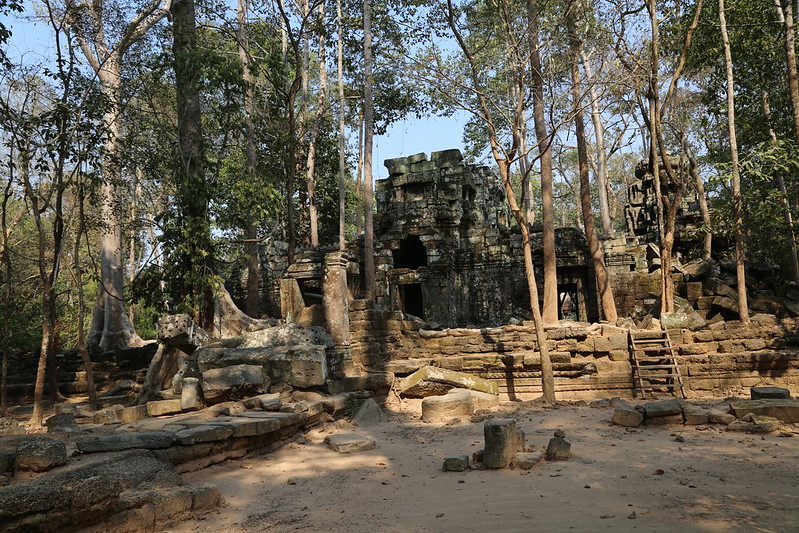Poverty and Wildlife Conservation in Cambodia
 In Cambodia, one of the most biodiverse countries on Earth, poverty and wildlife conservation presents a significant challenge. The rich flora and fauna attract conservationists and researchers, but pervasive poverty threatens both human livelihoods and ecosystem health as Cambodia grapples with illegal logging, poaching and land encroachment.
In Cambodia, one of the most biodiverse countries on Earth, poverty and wildlife conservation presents a significant challenge. The rich flora and fauna attract conservationists and researchers, but pervasive poverty threatens both human livelihoods and ecosystem health as Cambodia grapples with illegal logging, poaching and land encroachment.
Community-Based Conservation Initiatives
The integration of sustainable livelihood activities into conservation programs is one promising approach. Empowering local communities through ecologically friendly income-generating activities, such as sustainable agriculture, ecotourism ventures and harvesting nontimber forest products, can alleviate poverty and reduce dependence on destructive practices. Central to these ongoing efforts is community-based conservation, which places local stakeholder involvement at the core of decision-making and resource management. In Cambodia, initiatives like the Community Protected Area concept have succeeded by granting communities rights and responsibilities over specific conservation areas. This approach not only protects biodiversity but also supports sustainable economic development in communities burdened by poverty.
KEO SEIMA REDD+ Project
The KEO SEIMA REDD+ project actively supports biodiversity and communities in the Keo Seima Wildlife Sanctuary, which is one of many forests that collectively make up 40% of Cambodia’s territory. The Wildlife Conservation Society describes REDD+ as an innovative approach designed to cut emissions from deforestation and forest degradation, thus decreasing CO₂ emissions that result from clearing and exploiting forests.
Since its founding in 1895, the Wildlife Conservation Society has partnered with the Royal Government of Cambodia’s Ministry of Environment. In Cambodia, 65% of the population relies on forest resources for their livelihoods. The Keo Seima Wildlife Sanctuary hosts more than 1,000 wild species, including 85 globally threatened ones and serves as both the ancestral and current home of the Indigenous Bunong people. Their unique culture and beliefs are deeply intertwined with the forest. With more than 13 years of protection and support, the program has safeguarded 166,000 hectares and prevented 21 million tons of carbon dioxide emissions.
Enhancing Conservation
New partnerships among conservation organizations, government agencies and private enterprises could enhance the scale and effectiveness of poverty-reduction efforts linked to conservation achievements. Projects like payment for ecosystem services and sustainable tourism enable various stakeholders to collaborate on solutions that benefit both people and wildlife. Moreover, adopting technologies such as remote sensing and data analytics can potentially bolster monitoring and enforcement efforts, thereby reducing illegal activities that threaten biodiversity and human well-being.
Supportive policy frameworks play a crucial role in promoting sustainable development and conservation outcomes. During the implementation of the Cooperation Framework, the United Nations and the Royal Government of Cambodia will engage in annual discussions, co-chaired by the U.N. Resident Coordinator and the Prime Minister of Cambodia. These discussions will provide a crucial platform for the United Nations and the Cambodian Government to identify areas for support and to enhance and broaden their collaboration, aiming to expedite progress towards achieving the Sustainable Development Goals (SDGs) by 2030.
Looking Forward
Cambodia’s commitment to community-based conservation and sustainable development practices promises a brighter future for both its people and its rich biodiversity. Strengthening partnerships and adopting advanced technologies could enhance conservation efforts, including wildlife conservation in Cambodia and bolster economic growth. By aligning these ongoing initiatives with global sustainable development goals, Cambodia aims to achieve a balance between environmental protection and poverty alleviation.
– Honorine Lanka Perera
Honorine is based in Highland, NY, USA and focuses on Good News and Politics for The Borgen Project.
Photo: Flickr
